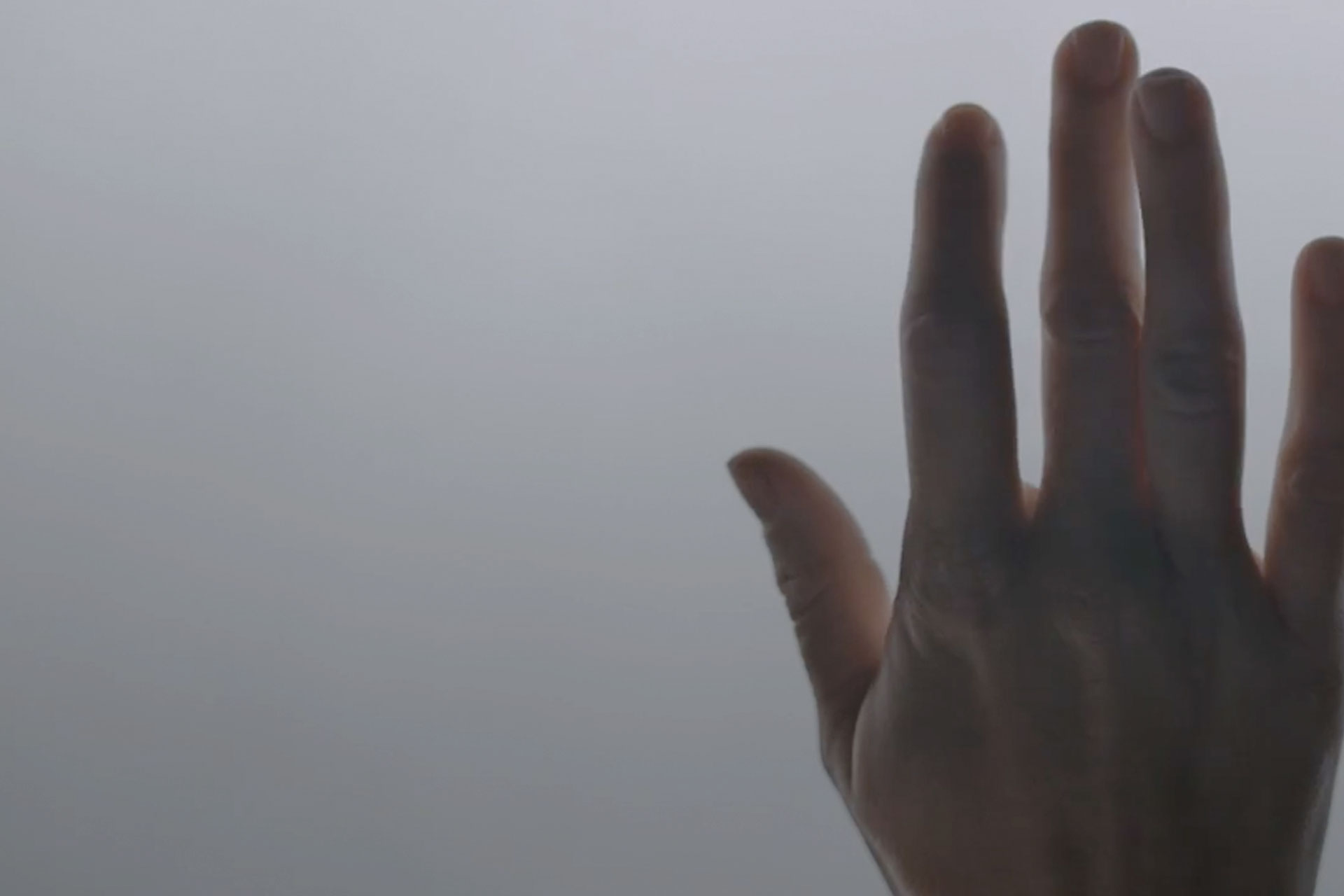How would aliens speak? During a considerable time, it was assumed that in English. Perhaps because the Anglo-Saxon science-fiction authors of the first half of the 20th century took the idea of English as a universal language far too seriously. Or because it was taken for granted that people who are able to traverse entire galaxies aboard their sophisticated spaceships must be able to speak English with the ease of a breath. Later on, in order to spare ourselves such linguistic discomfort, we appealed to the incorporation of translating machines in the story ––variations of C-3PO, the sleek golden robot from the Star Wars saga that boasts of speaking and translating more than six million languages––, so that each could speak in their native language and the machine would be responsible for interpreting it into a matter intelligible to all parties. Another frequent solution was that of the telepathic extraterrestrials, who read our minds while projecting in them their own mental images. And that was it; that was the end of the puzzle, without having to ruin everything with words.
Some more daring authors came up with chromatic, tactile, and even odoriferous communication codes, so that the linguistic barrier wouldn’t represent an obstacle in the exchange with aliens. For example, in VOR (Violet, Orange and Red) by James Blish, the extraterrestrials have a membrane on their foreheads that changes color depending on the mood of what they wish to communicate, which allows humans to come to understand the message but hardly able to answer it. While some people can blush in shame, get green with envy or turn red from fury, in order to become violet one must inflict suffocation or suffer from hypothermia, and to become orange, the affair gets much more difficult. In Memoirs of a Space Woman, by Scottish author Naomi Mitchison, touch is the only possible communicational system. The protagonist of the story—an expert in communication systems—manages to establish a close relationship with a Martian named Vly, who, in order to make himself understood, wraps her with his tongue, his toes and fingers, as well as with his sexual organs. The problem comes when, after a pleasant chat with the alien, she becomes pregnant with a crossbred creature.
One of the strangest cases to address this topic may be that of Brian W. Aldiss’ The Dark Light Years, where some weird black-stone-like rhinoceros aliens do nothing but grunt and defecate. Communication with these creatures is so impossible and frustrating that in an instant of enlightenment the protagonist decides to enter the cell where they are held captive, squats before them, and he too defecates on the ground ––a gesture that is answered by the aliens with a long grunt. Then, for the first and only time in the story, we are witness to the exact translation of what the space rhinoceroses comment among themselves: «What a strange thing this man, why would he do that?» The Dark Light Years leads us into despair and discouragement: After centuries spent trying to prove that we are not alone in the universe, when we finally establish the darn contact with other intelligent life, nothing serves absolutely any purpose because there is no way to communicate with a species so disproportionately different from us and from any other creature that we might have conceived.
And that is precisely the position shared by Arthur C. Clarke (Childhood’s End) and Stanislav Lem (especially in his work His Master’s Voice): It is an act of infinite arrogance, for us to think that such interplanetary communication is possible. Clarke asserted that any advanced form of science or technology is indistinguishable from magic. Communicating on the same level with some beings from outer space capable of reaching our planet is not even comparable to the rabbit that moderately communicates with the magician who just pulled him out of a top hat. Rather, it’s as if the magician tried to engage in diaphanous communication with the molecules of the epidermis of the rabbit’s ears. It would even be unthinkable —Lem assured— that the extraterrestrials would notice us, or that we would have the most remote possibility of exchanging signals with this organism, a million times more complex that us. There is no possible communicational bridge. It would be as absurd as a unicellular organism trying to establish contact with us to make it clear that it belongs to an intelligent species—and that it is crucial to the universe, too. Seen this way, and with great humility, we must assume that we are nothing but space plankton. With our conceit, our hypertrophied ego, we are no more than anthropomorphic paramecia. That is why in Clarke’s stories, as well as in Stanislav Lem’s, such communication is never successfully achieved among otherworldly species —there is no way to decode the messages they send us from outer space. There is no meaning, either, in our answers or our attempts to make ourselves understood.
A few years ago, the famous Stephen Hawking became the object of worldwide ridicule because of his warning: «Aliens almost certainly exist, but I advise humans to avoid contact with them.» It is quite likely that Clarke and Lem would not have laughed or taken this as a joke, so let’s get a little serious. Suppose that these creatures, able to bend time and space and traverse half the universe to come visit us, bothered to attempt communication. It is obvious to consider that their concept of language would not be the same as ours; that their language is not only articulated differently but names other things ––serves for naming and conceiving a universe that is strange or totally incomprehensible to us. The case would be similar to the argument of Edwin Abbott Abbott’s Flatland, where a sphere falls by accident into the two-dimensional world of squares and attempts to explain to its captors a universe full of curves and depths, a three-dimensional experience. There is no way to understand such an aberration from the squared point of view; better to subject the sphere to a procedure for it to only think and act in straight lines and angles, to pound it hard until flattened into two dimensions, which are what exists and what is understood. Well, here is another option: that the spheres refuse to be subdued by the plankton, and then we’ll be the ones to swell. Let’s hope we get some benevolent spheres.
Samuel Beckett wondered whether it is really us who possess language or if it is language that possesses us. Language determines the size of the universe, even the frontiers of imagination. It determines not only a way of naming and understanding the world but a way of being and acting in it. Beckett’s question could be complemented with Burroughs’ delirium, a madness so dangerously close to sanity that it is summed up in the concept of language as a virus: a virus that takes over its host and erases their identity at the same pace that it transforms them into a heap of copies of the virus itself.
Seen this way, through Burroughs’ lenses, language as a virus is an inoculated agent —language infects, language sickens its bearer and forces them to mutate into a subject identical to the virus. Just as with computer viruses: everything in the computer starts to disappear and lose ground until the only thing left is the virus. The virus takes possession of everything. For this reason, it is so important to totalitarian regimes to progressively and systematically inoculate a form of newspeak—1984 style—: if you speak as I want you to speak, you will end up thinking as I want you to think, and there will be no way for you to understand the world in any other way than mine. Welcome to the organism you inhabit and compose, along with a myriad of copies identical to you—you are a virus. A despicable virus.
Anthony Burgess, author of A Clockwork Orange (who, aside from being a writer, was a linguist and a composer) lets in on his famous novel (whose adaptation to the cinema by Stanley Kubrick would rather disgust him) that the young Englishmen speak in Nadsat due to the Russians’ successful, subliminal inoculation of their culture into English among the new generations —the rebels, those who reject their parents’ society. There is no need to drop a single bomb or shoot a single bullet to subdue the enemy: a virus has been subtly sown and, within a few years, it will turn the British kids into the best allies of their current rivals; within their organisms and tongues, they lodge the virus that has been inoculated in them. And they shall turn into viruses. If they speak like the Russians, and so begin to understand (name and think) the world, soon they will be more Russian than children of their phlegmatic parents.
There is a story by Robert Sheckley called «Shall We Have a Little Talk?» where the success of Earth’s capitalist domination over the rest of the galaxy is sarcastically narrated: capitalist all of it, entirely, except for a small planet that still resists. Aiming to put an end to this annoying and derisory resistance, an emissary of Earth is sent there with the excuse of buying property—but once on the planet, he is faced with the challenge of a daily-changing alien language. Each day, the language of this irreducible planet is subject to all sorts of structural variations as a defense mechanism against the colonizing planet. Staying protected from the language that the invader attempts to sow works as a shield and as a safety valve. The conqueror might come up with a peacock display, harass the victim by deploying all his weapons of seduction, shower it with praises, flowers, threats or curses: the creature remains unseducible. They do not speak the same language, do not see things with the same eyes —there is no way for one to think of what the other wants it to think, there is no room for the retribution of words, ideas or feelings. The situation is as helpless as trying to apprehend a soul that metamorphoses into another every twenty-four hours, and that can even become vaporized and dematerialize at will. The target organism for infection, ultimately, cannot be found. The virus finds no grip and is thus condemned to the void, to float sterilely into nothingness until opting for self-destruction.
At this point, we return to the terrible Billy Burroughs and his language as a virus, but now thinking that virus can be a vaccine. Vaccines are nothing but bacteria or viruses —either active or weakened— that have been bred for the purpose of immunization against the very threat they pose. Language as a virus is the malady but could also, potentially, be the cure. Death and life, the weapon of destruction and the key to salvation, cohabiting within the same agent. Burroughs asserted that the end of language was chaos, absolute noise, and lastly, silence. But that viral nature of language could also be thought of as a metaphor for vaccination or immunization: the language that is inoculated can also be an agent to stimulate defenses. While some languages are agents of destruction, others carry elements of construction and elevation. There is —we cannot forget—language as poetry, as distinguished bearer and forger of beauty; a language that makes us wiser, more freethinking, less squared and less self-absorbed. A language like that of the heptapods who suddenly arrive from outer space in Arrival—Denis Villeneuve’s film inspired by Ted Chiang’s fabulous story «The Story of Your Life»—, which serves as weapon and tool at once. It is no coincidence that each time the seven-limbed aliens refer to the reason for their visit to Earth, they say that they are here to give us a «weapon,» and the term is translated by linguists sometimes as «weapon» and others as «tool.» And this weapon/tool that the heptapods bring as a gift is no less than their language, one capable of making us perceive and experience time and space in a different way, of allowing us to rise to a new dimension, where we can live simultaneously, here and now, where everything happened and everything is yet to occur. A language for making us witnesses of the past and visionaries of the future at once: we become historians, poets, philosophers, science-fiction storytellers. A superior language, in short, suitable for the conception and construction of the desired world, because «the limits of the possible can only be defined by going beyond them into the impossible,» as Arthur Clarke said. It must be forged, then, inoculated, and propagated, this language that imagines the impossible and thus broadens the possible. This is a language loaded with new senses, loaded with nobleness.
Against the inoculation and proliferation of the immunizing language—language as a vaccinating virus—, there is no totalitarian newspeak or bombastic crassness that matters. Noisy stupidity cannot flourish in an environment of intelligence, beauty, and good taste. It finds no echo, there is no answer, it wouldn’t even find a way of being decoded or understood. It is, again, like plankton trying to communicate by shouting, in a high-sounding, vociferous and threatening manner at an infinitely larger, more sublime and complex organism, whose mindset, in addition, is elsewhere, which is why it remains absolutely inaccessible and imperturbable.
And, certainly yes, Burroughs was right —except that the way was not that of contagion, malady, addiction, chaos, vertigo and absolute noise: in the end, the fate of language will always be silence. A beautiful, peaceful, and wise silence that allows for a better thinking and a better expression of oneself.
About the Author:
José Urriola (Caracas, 1971) holds a degree in Mass Communications from Universidad Católica Andrés Bello. He has been a producer, scriptwriter, and audiovisual director. He is the author of the comic book Chupetes de Luna (Thule 2012), the novels Experimento a un perfecto extraño (Sudaquia 2012) and Santiago se va (Libros del Fuego 2015), and the book of short stories Cuentos a patadas (Ekaré 2014).

















